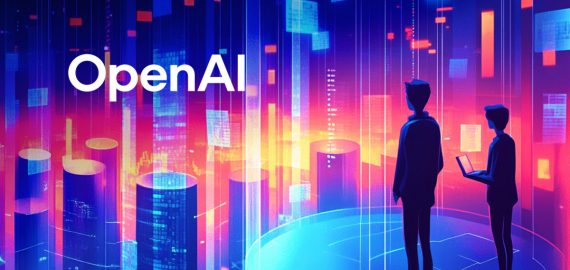The Perfect Solution for Ethical AI Training Lies in Blockchain Technology


In Brief
Blockchain could improve control over AI model training, particularly in ethical data usage, according to Aptos co-founder Avery Ching, who highlighted its potential in digital innovation.

In recent discussions regarding digital innovation, the relationship between blockchain and artificial intelligence has been a hot topic. Aptos co-founder and chief technology officer Avery Ching emphasized how blockchain may offer transparent permission procedures for the usage of material in AI training. Speaking at India Blockchain Week 2024, Ching made a strong argument for using blockchain technology to improve control over the training of AI models, especially when it comes to the usage of ethical data.
Control and Consent in the Training of AI Models
Large volumes of data are essential for training artificial intelligence, especially large language models (LLMs). Although the sources of this data are frequently openly accessible, issues with permission and intellectual property rights are still up for debate. This is a crucial area where blockchain might have a huge impact, according to Ching. Content producers might establish clear guidelines for whether and how their work is utilized for AI training by utilizing the immutable and decentralized characteristics of blockchain technology.
All parties can observe the terms under which content is utilized because of blockchain’s transparecy. For creators, whose work is frequently utilized without their consent, this might promote a more fair atmosphere. Ching highlighted that blockchain is the perfect “back end” for controlling such rights since it offers a centralized yet safe form of governance.
The Significance of Blockchain in Contemporary AI Issues
Although blockchain and artificial intelligence are frequently discussed in IT circles, Ching stressed that their combined potential is more than just hype. He emphasized how crucial it is to comprehend and control the data used to train AI systems, and he proposed that blockchain technology may serve as a barrier against the illegitimate or immoral use of material.
Ching used an example from the India Blockchain Week conference itself to demonstrate this. AI models could be trained using event content, whether it be video footage or news article summaries. This raises the question of whether training materials of this kind should be publicly accessible or if there should be controls on how they are used. Through the direct integration of usage rights into digital material, blockchain may offer the necessary infrastructure to address this query.
The Problem of Scalability
Major scalability concerns are brought up by the use of blockchain for consent management in AI training. Applying blockchain-based permission to each individual piece of data is difficult since social media platforms like Facebook and others create billions of pieces of data every day. Ching, a former employee of Meta, recognized this difficulty, pointing out that putting blockchain regulations in place would need a large transaction volume and may be expensive.
Ching was upbeat about blockchain’s potential in this field in spite of these challenges. Aptos is currently developing solutions to serve these use cases via its blockchain network, he noted. Ching thinks blockchain may become a practical solution for handling AI training data at scale by maximizing transaction efficiency and cutting expenses.
Applications Beyond AI Training
Although Ching’s comments mostly addressed AI training, there are other possible uses for blockchain in content management. Blockchain-enabled technologies might help independent authors, news outlets, and social media platforms manage the usage of their material. For example, using blockchain-enabled smart contracts, individuals might explicitly give or refuse authorization for particular activities, such as data mining or commercial exploitation.
This strategy could also aid in addressing more general issues of data privacy and intellectual property. Blockchain has the potential to give people and organizations more control over their digital footprints by offering a transparent and safe foundation. This degree of oversight could become more crucial as AI develops in order to guarantee moral data usage practices.
Setting a New Benchmark for the Development of Ethical AI
As models become more sophisticated and popular, there is increasing worry about the ethical implications of AI training. There is a chance that unfair activities, including taking use of authors’ intellectual property without paying them, may continue if there are unclear guidelines for permission. By allowing content producers to clearly and legally define the conditions of use for their creations, blockchain presents an appealing solution.
Ching’s idea is in line with a larger movement for moral AI development that places an emphasis on creators’ rights and respect. Blockchain integration into AI training processes might lead to the creation of a new standard that strikes a balance between the rights of people and organizations and the necessity for innovation.
Disclaimer
In line with the Trust Project guidelines, please note that the information provided on this page is not intended to be and should not be interpreted as legal, tax, investment, financial, or any other form of advice. It is important to only invest what you can afford to lose and to seek independent financial advice if you have any doubts. For further information, we suggest referring to the terms and conditions as well as the help and support pages provided by the issuer or advertiser. MetaversePost is committed to accurate, unbiased reporting, but market conditions are subject to change without notice.
About The Author
Victoria is a writer on a variety of technology topics including Web3.0, AI and cryptocurrencies. Her extensive experience allows her to write insightful articles for the wider audience.
More articles

Victoria is a writer on a variety of technology topics including Web3.0, AI and cryptocurrencies. Her extensive experience allows her to write insightful articles for the wider audience.


















































